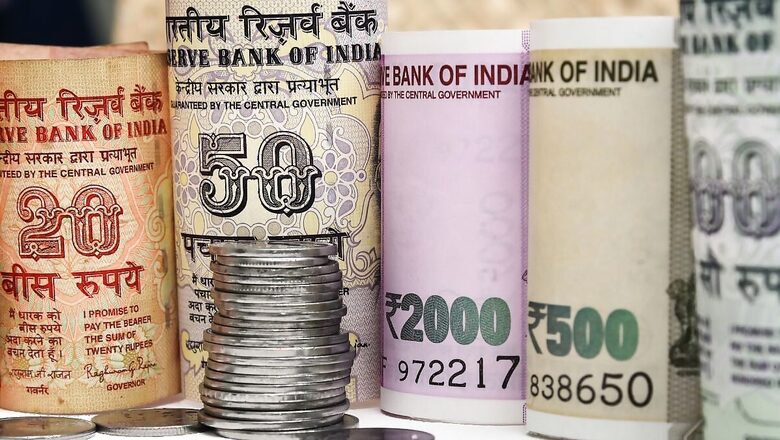
views
The Supreme Court on Thursday struck down electoral bonds, calling them unconstitutional and violative of the right to information under Article 19(1)(a) of the Constitution.
The verdict, delivered by a bench of CJI DY Chandrachud, Justices Sanjiv Khanna, BR Gavai, JB Pardiwala and Manoj Misra, focused on two aspects: (a) whether not disclosing information on voluntary contribution to the political parties as per the electoral bond scheme and amendments to Section 29C of Representation of the People Act, Section 183(3) of the Companies Act, Section 13A(b) of the Income Tax Act are violative of the right to information under Article 19(1)(a) of the Constitution.
(b) Whether the unlimited corporate funding to political parties violates the principle of free and fair elections.
Let’s look at why electoral bonds violate Article 19(1)(a) of the Constitution.
Article 19(1)(a) of the Constitution guarantees all citizens right to freedom of speech and expression. It includes the right to express their views and opinion through any platform. The freedom of press is essential part of this right; it ensures circulation of information and opinions widely. This right also implies that a person cannot be forced to speak or give their opinion against their will. Social media platforms are also covered under this right but hate speeches and unlawful content is not allowed.
In context of today’s verdict, the SC argued that secret donations to political parties violate right to information, which is the tenet of a democracy. The right to information could only be restricted through Article 19(2).
It held that information on funding of political parties was essential for voters. Economic inequality contributes to political inequality due to the deep relation between money and politics. Money increases access to legislators and raises the legitimate possibility of quid pro quo such as favourable policy changes. Therefore, it violates right to information under Article 19(1)(a).
Unlimited Corporate Funding
Not disclosing the donor of electoral funding by corporates could allow the companies to manipulate or influence the political process, which can affect policy or election outcome.
Under the Companies Act, contribution to a political party by a corporation could not exceed the ceiling limit of 7.5% of the average net profit during the three preceding financial years. This requirement was removed through a 2017 amendment under Section 182 (prohibition and restrictions regarding political contributions).
Another amendment to the Companies Act was challenge to disclosing the name of the political party to which a donation was made. After the amendment, the name of political party need not be disclosed.
Notably, the Election Commission had opposed the 2018 electoral bond scheme.
Curbing Black Money
The court held that RTI can only be restricted based on Article 19(2), and cannot curb black money. It said there are other means than electoral bonds to achieve the purpose of curbing black money. The infringement to the right to information is not justified.
For the scheme to be legitimate, it has to have three purposes, laid down in the 2017 verdict in the KS Puttaswamy case over the right to privacy.
The existence of law: The electoral bond scheme was brought through the Finance Act, which introduced a series of amendments in the Income Tax Act and Representation of People’s Act.
Law must showcase legitimate state interest, which can be achieved through Parliament.
The third is whether encroachment on fundamental rights. The CJI stated that the states should put a cap on the donation amount. Thus, right to information is not proportionally justified to curb black money in electoral financing.
What is an Electoral Bond?
An electoral bond is an instrument in the nature of a promissory note or bearer bond which can be purchased by any individual, company, firm or association of persons provided the person or body is a citizen of India or incorporated or established in India. The bonds are issued specifically for the purpose of contribution of funds to political parties.


















Comments
0 comment